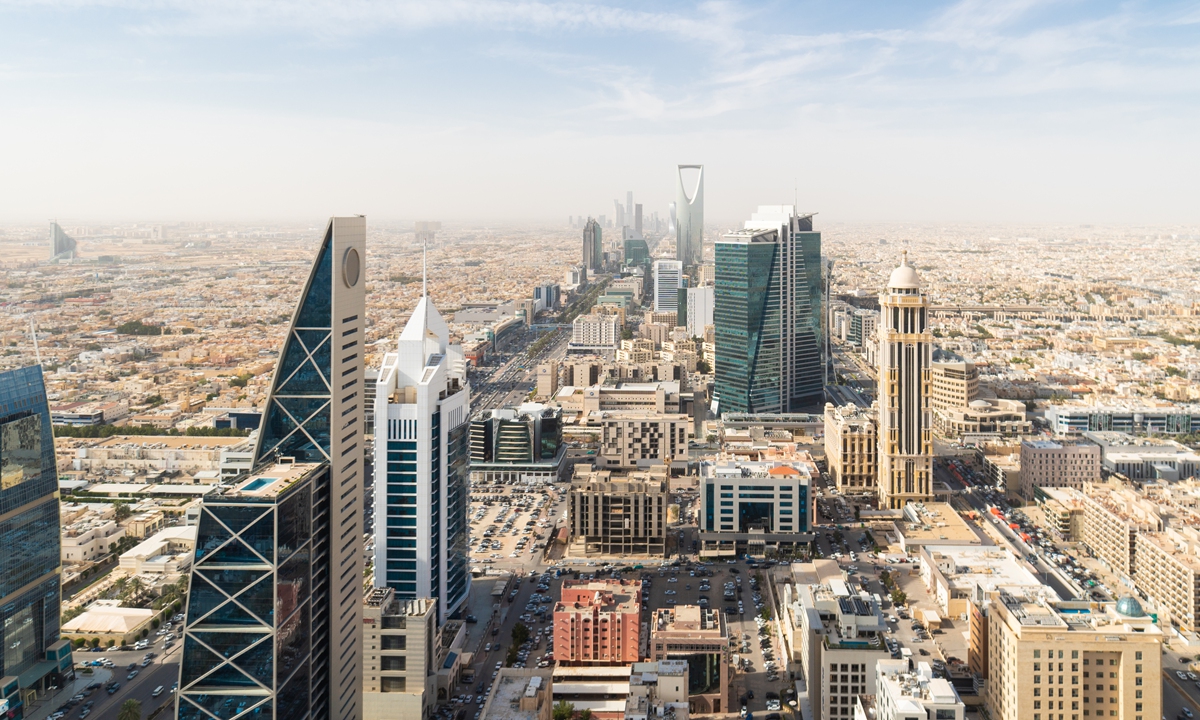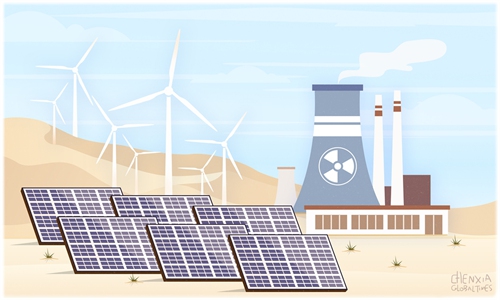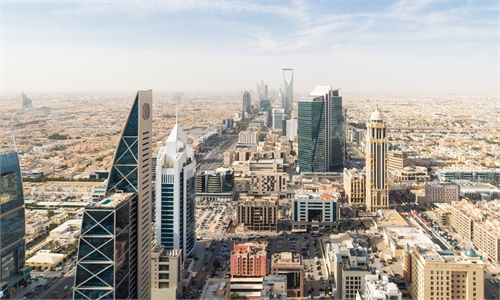Li’s visits to Saudi Arabia, UAE to ‘lift cooperation’
High-level interactions to promote collaboration on energy, finance, high-tech: observer

An aerial view of Riyadh, capital of Saudi Arabia Photo: VCG
Chinese Premier Li Qiang is scheduled to travel to Saudi Arabia to chair the Fourth Meeting of the High-Level Chinese-Saudi Joint Committee and visit Saudi Arabia and the UAE from Tuesday to Friday. Analysts anticipate the trip will further promote cooperation between China and the two countries, particularly in the fields of energy, finance and high-tech, and provide positive impetus for regional development.
The China-Saudi Arabia High-Level Joint Committee was established in 2016. The third meeting was held in February 2019, co-chaired by then Chinese Vice Premier Han Zheng and Saudi Arabia's crown prince Mohammed bin Salman Al Saud, according to the Xinhua News Agency.
The China-Saudi Arabia High-Level Joint Committee and Premier Li's visits to Saudi Arabia and the UAE are expected to further promote pragmatic cooperation in energy, which is the main field of bilateral cooperation, seek deeper collaboration on high-tech exchanges, enhance financial cooperation to drive economic stability, and expand infrastructure projects, Sun Degang, director of the Center for Middle Eastern Studies at Fudan University, told the Global Times on Tuesday.
The expert noted that China and Saudi Arabia may also achieve some breakthroughs in cross-border crude oil transaction settlements.
According to a report from the South China Morning Post, Bandar Al-khorayef, Saudi minister of industry and mineral resources, said that Saudi Arabia is "open to new ideas," including use of the yuan for crude settlements.
In recent years, China has become the primary trading partner for many Arab states and as many countries increasingly seek to reduce reliance on the US dollar, diversifying the payment system is a natural progression. This shift is not intended to undermine the dollar but reflects evolving trade dynamics and practical cooperation needs between China and Arab nations. Such diversification also aligns with the interests of both sides and broader global economic trends, Sun noted.
While China and Arab countries staying committed to building of a community with a shared future, this endeavor demands ongoing innovation and expansion in both the scope and level of their cooperation. Saudi Arabia and the UAE, as China's two most important trading partners in the Middle East and key hubs for innovation, will play a pivotal role in China-Arab cooperation, analysts said.
China's focus on resolving disputes through economic cooperation and mutual benefit not only helps ease tensions in the Middle East, but also paves the way for long-term stability and prosperity in the region, Sun added.



